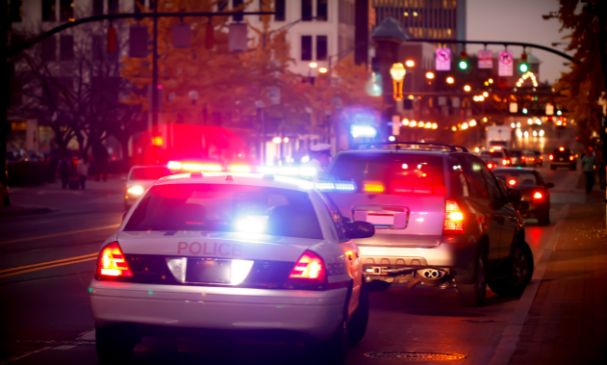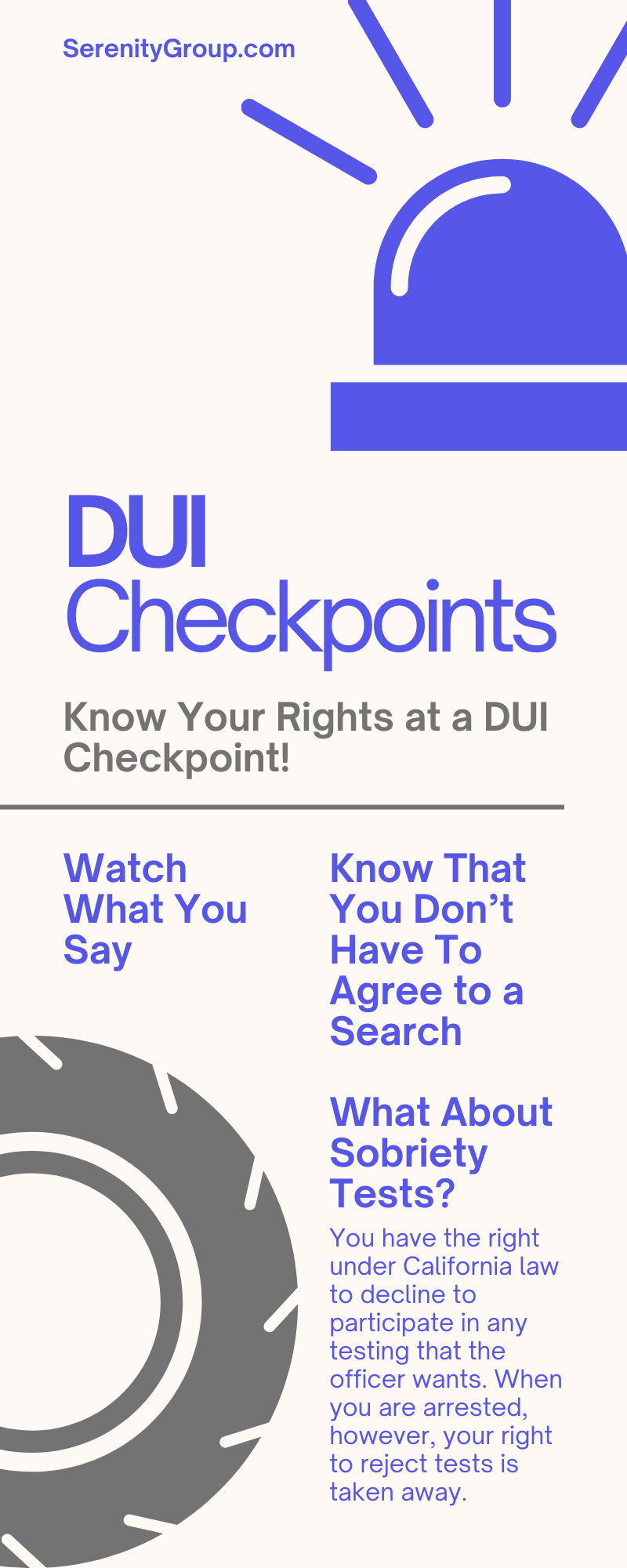All There Is To Know About DUI Checkpoints In California

DUI checkpoints are some of the scariest things to see on the road for many. Even if you are not drunk or intoxicated, the stress of the situation alone is enough to make most at least a little e bit scared. Unfortunately, this common fear stems from a total lack of knowledge surrounding the rules and regulations of DUI checkpoints. In these situations, the best thing that you can do to improve your situation is to know all there is to know about DUI checkpoints in California before you encounter one. Read on and get all you need to know on the matter!
Can You Refuse Interaction During A DUI Checkpoint?
In California, drivers may be subjected to DUI checkpoints, which are employed by law enforcement to capture inebriated drivers. You will be arrested and charged with a misdemeanor or felony DUI if you are found driving intoxicated by a policeman at any of these checkpoints. As a result, many people want to know if they may refuse to cooperate with police demands during DUI checkpoints.
Is It Legal To Purposefully Avoid a DUI Checkpoint?
Surprisingly, turning around to dodge a DUI checkpoint is not unlawful. In actuality, it is prohibited for officers to pull you over because you drove away from a checkpoint. However, you must exercise caution.
Even if you are attempting to evade a DUI checkpoint, you must still follow all driving regulations in the area. For example, an unlawful U-turn offers police officers an easy excuse to pull you over. If you are inebriated, they will most certainly discover it on the subsequent stop.
Drivers who undertake risky maneuvers, such as swerving or driving aggressively, are in the same boat. These activities might be interpreted as indications of intoxicated driving, resulting in a traffic stop.
Myth: DUI Checkpoints Are Unconstitutional
The belief that DUI checkpoints are unlawful is widespread; however, that is not the case. The federal government and the California Supreme Court have both approved DUI checkpoints.
DUI checks are frequently ruled to be “administrative inspections” by these courts. As a result, they are practically the same, legally, as the security checkpoints you must pass through to board a plane. According to this argument, you do not have the legal right to refuse to cooperate with a DUI checkpoint in California.
The Requirements You Should Know for DUI Checkpoints
Officers stationed at a DUI checkpoint are required to adhere to certain standards. If these regulations are not followed correctly, you may be able to have your DUI charges dismissed if you were stopped at an inadequately controlled checkpoint.
- A police supervisor must make the choice to set up a DUI checkpoint.
- To avoid excessive delays, the checkpoints should only be used when they are necessary or beneficial.
- Each checkpoint must have appropriate signage indicating the checkpoint’s official status.
- Checkpoints must be announced ahead of time and should always allow for the safe and quick passage for all motorists.
- All regulations must be impartial for each driver passing through the checkpoint.
Know Your Rights at a DUI Checkpoint!
Under California law, officers will have the exclusive right to investigate you if you are stopped at a DUI checkpoint. This does not, however, imply that your legal rights should be compromised.
Know That You Don’t Have To Agree to a Search
Officers do not have the automatic authority to search your car if you are stopped at a DUI checkpoint. They do have the authority to search your car for probable cause, but only if they see something that is readily visible through the windows. If they discover evidence that leads them to believe you have been drinking and driving or have committed another offense, they may have grounds to arrest you or conduct a search.
Watch What You Say
Officers usually ask a few questions to drivers at a DUI roadblock. To begin, they will ask for your name, driver’s license, and registration information. Refusing to submit this information usually results in some type of violation.
You can, however, refuse to answer some questions. If a driver asks if you’ve been drinking, for example, you’re not obligated to respond. You have the freedom to decline any inquiry that may incriminate you in the eyes of the law under the Fifth Amendment of the United States Constitution.
What About Sobriety Tests?
Officers may ask you to undergo a sobriety test if you are stopped at a DUI checkpoint. This generally happens only if the police officers suspect that you have been drinking. The tests are designed to determine your degree of drunkenness before you may be arrested.
You have the right under California law to decline to participate in any testing that the officer wants. When you are arrested, however, your right to reject tests is taken away. You can still be arrested even if you deny the officer’s request for sobriety tests.
Worse yet, people who refuse to take a breath test after being arrested face harsher penalties if they are eventually convicted of a DUI. These penalties might range from increased fines to longer suspensions of a driver’s license and a longer requirement of California SR22 insurance.
Last of All, Do Not Stress
It’s not the end of the world if you are pulled up for a DUI at a checkpoint. You still have the option of contesting the charges. If a DUI lawyer judges that your rights have been violated during the stop, this will be considerably easier.
Remember that DUI checkpoints must adhere to a certain set of guidelines, and these officers definitely do not know all there is to know about DUI checkpoints in California. The case may be dismissed if the regulations were not followed correctly prior to your arrest. To get to that stage, though, you’ll need the help of a seasoned attorney.
While DUI checkpoints can often lead to tense and stressful situations, it should be obvious to you right now that they are not the end of the line for you! As long as you know what to do around these checkpoint stations (and you are not intoxicated), you should be fine in any situation!


Recent Comments